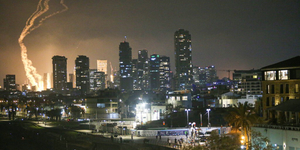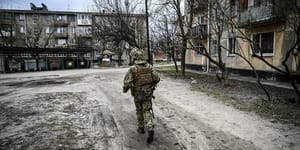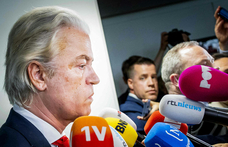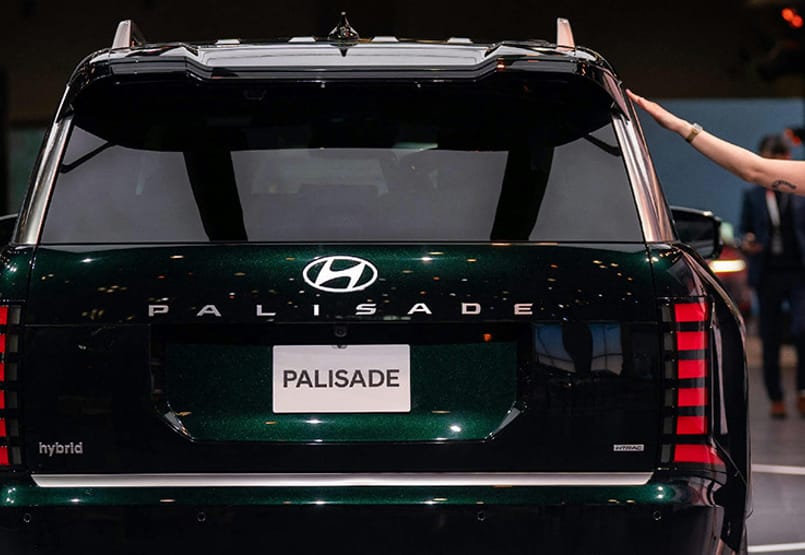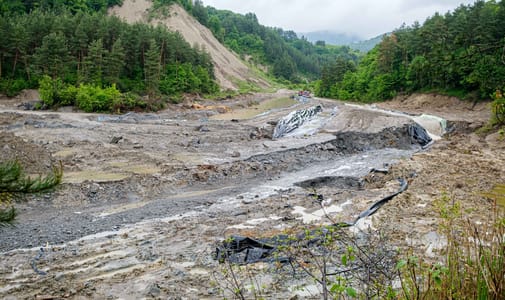"The most important thing is that there be gas in the pipe"
It is the common interest of gas-importing Europeans and the gas exporters of the Caspian region that the Nabucco pipeline should break Gazprom's monopoly, according to Steven Mann, who has been tasked by the American government with persuading the various sides to work more closely together.
HVG: The American government lays great emphasis on building the Nabucco pipeline. It is clearly in central Europe's interest that we should be able to get gas from somewhere apart from Russia, including from central Asia. But why does it matter so much to the US?
S.M.: It's true that the US will never receive a single molecule of Caucasian gas. But the US government's long-term policy is to support the sovereignty, stability and independence of the new states of the Caspian region. In the 1990s, the region's leaders kept telling us that they did not feel secure because large parts of their economy depended on the monopolies of Transneft, which operates the Russian pipeline system, and Gazprom. We would like these countries to be able to use their gas assets for their own benefits. We also sense that our European allies' demand for gas is rising fast. So we are trying to help find a solution, bearing in mind the region's dependence on Gazprom, and hearing the fears that the governments of the region express in this connection. Fortunately, the Europeans have now also come together on this.
HVG: Mihaly Bayer, the Hungarian government's coordinator for Nabucco surprised members of parliament a few days ago by saying that of all the pipelines planned for Europe, Nabucco at the most advanced stage of development. Do you share this optimism?
S.M.: Indeed, whereas the consortium of companies behind Nabucco has already been set up, and while the feasibility studies are already being constructed, South Stream hasn't got this far. Gazprom can sign contracts easily enough, and it can announced dates, because they're not accountable to anybody, while the Nabucco consortium's members - Germany's RWE, Austria's OMV, Hungary's Mol, Romania's Transgaz, Bulgaria's Bulgargaz and Turkey's Botas - are responsible for what they say and do. The most important things is for there to be gas in the pipe. I was in Baku, the capital of Azerbaidzhan, recently, and in Ashabad in Turkmenistan, because these two countries will have a key role in supplying Nabucco with gas. Azerbaidzhan is already exporting gas to Turkey, and the president has made a solemn promise to export to Europe as well. The US is trying to encourage authorities in those countries to develop their production as fast as possible. I did the same in Turkmenistan, which has huge unexploited gas reserves. In Budapest, we are encouraging our Hungarian allies to build ever closer links with the two countries.
HVG: The International Energy Agency (IEA) has warned that if Russia does not invest far more in gas production than it does today, then from 2011 it will no longer be able to meet export demand - and four fifths of Hungary's gas consumption is met with imports from Russia. Couldn't the US do more to reduce this level of dependency?
S.M.: It is estimated that the OECD's European members will be consuming 250bn cubic metres more gas in 2015 than they are today, and there will be a shortfall in the international gas trade of around 218bn cubic metres. So we are calling for more gas production, for the second phase of Azerbaidzhan's Shah Deniz gas field to be started, for example. We asked the Azeri government to make it possible to extract gas from deeper strata, for example. Turkmenistan used not to let foreign energy companies operate in the country. The new Turkmen president has changed his position and set ambitious production aims. And Iraq could also eventually supply gas to Nabucco.
HVG: Gazprom, which is increasingly meeting its contractual obligations to western countries with Turkmen gas, promised Ashabad that it would raise prices to an undefined "European" level from 2009. Isn't this competition for Turkmen gas hitting European consumers' wallets?
S.M.: European consumers have to pay the market price, so competition between Russian and Turkmen gas will bring benefits. Competition will help Turkmenistan get the real price for its natural resources. In the 1990s, the Turkmens did once stop sending gas to Russia in order to extract a higher price from them - but they only succeeded in bringing their economy to the brink of collapse. They learned their lesson - for example that it is hard to enforce your rights if you sign a contract with Gazprom. The contract contains no dispute resolution provisions.
HVG: But is it realistic that Iraq will become a supplier of gas to Nabucco in the foreseeable future?
S.M.: Iraq's energy sector should soon become organised enough to allow foreign companies to start exploring for and extracting gas. Iraq will probably only be ready to export once the second phase of Nabucco starts, but Nabucco can start running before it reaches its full capacity of 30bn cubic metres.
HVG: You didn't mention Iran as a supplier, even though they have the world's second largest reserves of natural gas after Russia. Since there are few democracies rich in gas, wouldn't it be worth relaxing sanctions against Iran to make Nabucco a more realistic proposition?
S.M.: We oppose all kinds of energy cooperation with Iran. And why would Europe want to work more closely with a regime which calls for Israel's destruction, supports terrorism directly and builds weapons of mass destruction? This would be too high a price to pay for gas.
HVG: And Turkey's role in Nabucco is a difficult one, because Ankara demands a monopoly on its section of the pipeline, agaisnt EU rules. Of course, Moscow has made the same demand with respect to the Hungarian section of the South Stream pipeline. Is it possible that if the Turks don't allow it, or insist on EU membership as a quid pro quo, then Nabucco might have to take a different route.
S.M.: Turkey knows how badly it needs gas. The closer we get to the date when gas will flow in the pipe, the easier it will be to reach agreement. And Azeri gas will be flowing to Europe in just a few years. It would cost a lot more to route Nabucco differently, although there are plans to bring gas via Georgia and Ukraine or Romania - that's White Stream. But the US will only support a pipeline which makes business sense, and this has not been proven in the case of White Stream.
HVG: The Baltic states are trying to prevent the Russia-Germany North Stream pipeline using legal means. Ukraine has threatened something similar in the case of South Stream, while Russia is making the same threat with respect to the Caspian sea. Is it possible that everyone will just stop everybody else? No pipes, no gas?
S.M.: As soon as Turkmenistan and Azerbaidzhan reach an agreement on the Caspian pipeline, there can be no barrier to this project - there is no legal challenge. There are some 6,000km of pipelines under the Caspian sea. So it would be dishonest to make an issue out of it.
HVG: Hungarians are unhappy with the EU's newly appointed Nabucco coordinator, Jozias van Aartsen, who seems more interested in being mayor of The Hague than in planning a pipeline. How do you see this?
S.M.: I haven't yet had the pleasure of meeting him. In any case I think that the EU has already done fantastic work in bringing together the different parties in the Nabucco project, especially with regard to building political and economic links with the Caucasian producers.
HVG: Given how enthusiastically the American government promotes the project, it's surprising that you're uncertain about when the pipe will be built.
S.M.: The Nabucco consortium plans to start deliveries in 2013. Constructions may take until 2018, but there will be real competition from the very beginning.
GYÖRGYI KOCSIS


